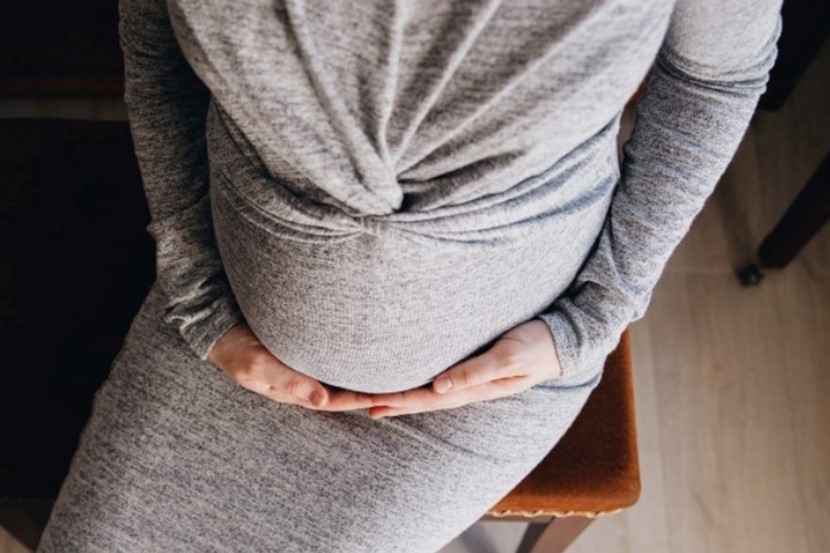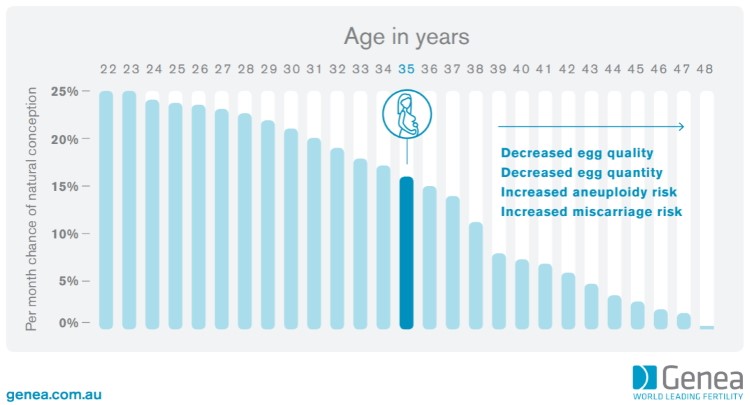The impact of age on conception

It’s generally considered less than polite to ask a lady her age. But in the world of fertility, it will be the number one question you’re asked. That’s because female age is one infertility factor we can do little to combat. While Hollywood might be telling you a different story (hint - don’t believe everything you read), our experience shows that conceiving and giving birth using your own eggs after the age of 45 is extremely rare.
Now that’s obviously the upper end of the age conversation and you might be thinking, “I’m 10 years younger than that so I’m fine”. Unfortunately, and we’re not trying to be alarmist when we say this, fertility actually peaks at 22 and gradually declines from then on. Unfortunately, the decline picks up pace and begins to be an issue from 33 or so, falling even more dramatically after 35.
As you can see from the graph below, by the time you’re 36, your chance of conceiving naturally each month is decreased by half - and that’s if there are no other factors at play. The downward slope continues until by the age of 45 the average natural fertility rate per month is approximately one per cent.
Age works against your fertility in several ways. It increases the likelihood you’ll suffer from problems with ovulation or your cycle and it also impacts on the health and number of eggs you have.
As your age advances beyond approximately 33, it’s more and more likely that your aging eggs will let the side down when it comes to conception. At first this will just be sporadically, but eventually it will be so thorough that you’ll essentially be sterile. And that can happen years before menopause. You see, the issue is that women are born with all of the eggs you’ll ever have - approximately two million. By the time of your first period, that number will have dropped to approximately 300,000. Not only is the number of eggs you have falling as you get older but the quality of the ones you have left is also diminishing. A delay in seeking help if you’re having trouble conceiving can impact significantly on your chance of success.
Research shows that many couples wait for more than two years before seeking fertility treatment. The problem with that is that if you’re 36 and you decide to wait for the average time, you’ll be 38 by the time you seek treatment and your chances of conceiving will have dropped a further 15%.
The bottom line is - don’t wait! Get checked out to make sure there isn’t a medical issue that no amount of waiting will fix.

